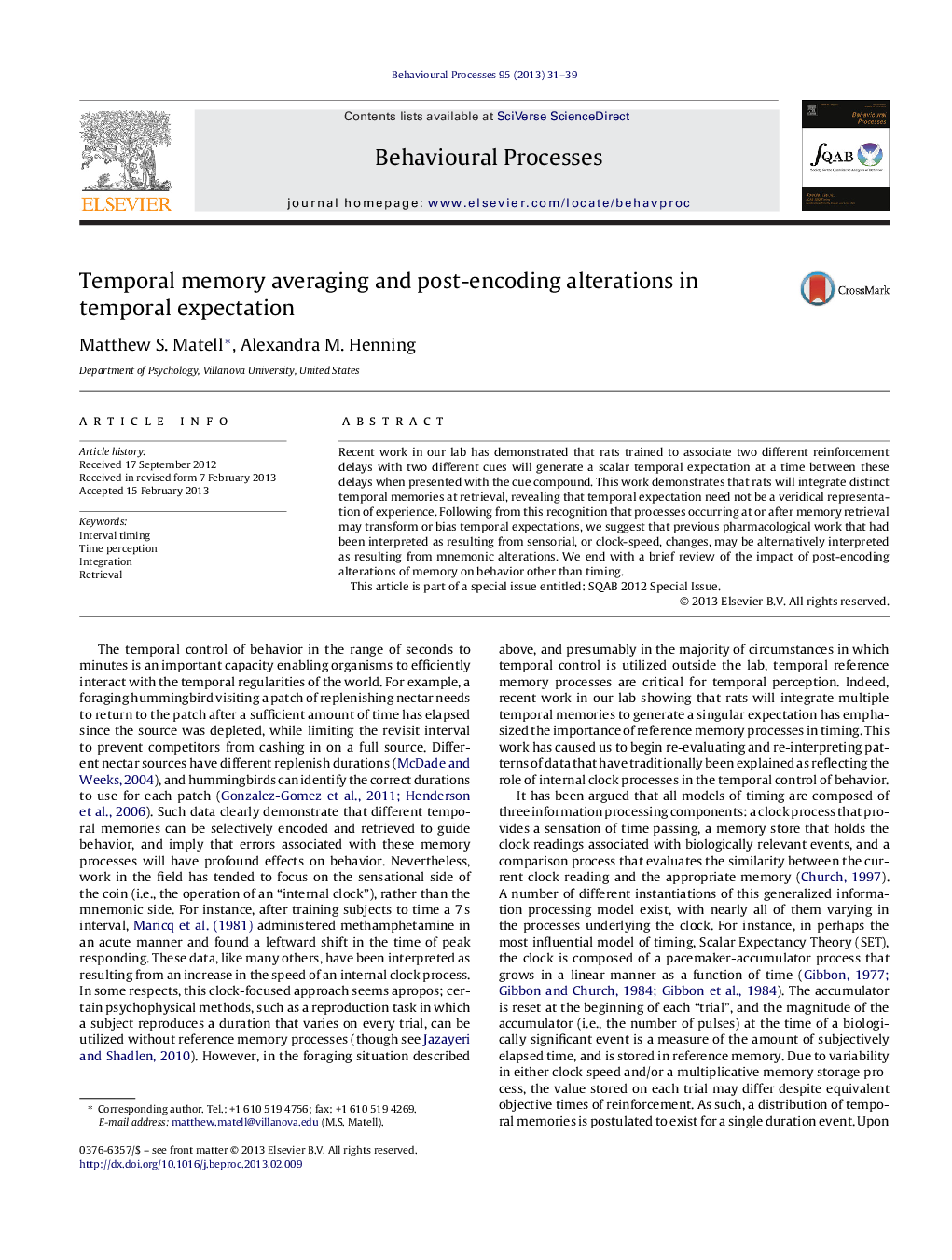| Article ID | Journal | Published Year | Pages | File Type |
|---|---|---|---|---|
| 2426850 | Behavioural Processes | 2013 | 9 Pages |
Recent work in our lab has demonstrated that rats trained to associate two different reinforcement delays with two different cues will generate a scalar temporal expectation at a time between these delays when presented with the cue compound. This work demonstrates that rats will integrate distinct temporal memories at retrieval, revealing that temporal expectation need not be a veridical representation of experience. Following from this recognition that processes occurring at or after memory retrieval may transform or bias temporal expectations, we suggest that previous pharmacological work that had been interpreted as resulting from sensorial, or clock-speed, changes, may be alternatively interpreted as resulting from mnemonic alterations. We end with a brief review of the impact of post-encoding alterations of memory on behavior other than timing.This article is part of a special issue entitled: SQAB 2012 Special Issue.
► Rats show maximal temporal expectation at the average of previously trained component times when presented with a stimulus compound. ► The compound peak function is scalar thereby suggesting that rats average temporal memories and time expectation in a normal manner. ► The compound peak time is well predicted by a reinforcement probability weighted average of the component cue peak times. ► Computations and biases during memory retrieval may impact temporal expectations. ► Retrieval based modulations of memory should be considered more strongly when interpreting timing experiments.
